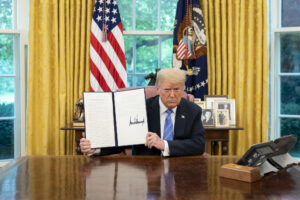Each time, the interview was deviating. It was no longer the Europeanness of Russia. It was no longer about the fact that no Westerner, no less American than European, has ever wanted to annex any part of Russian territory. It was no longer about the desire of the European Union to be able one day to ensure, with Russia, the stability and prosperity of our common continent, of our “common home”, as Mikhail Gorbachev used to say.
It was no longer even about our community of history and culture, which was recalled in the Address to the Russian people recently published by the presidents of four of the main political groups in the European Parliament and myself. No, what the Russian press in exile was asking me about was the popular approval that the “special operation” in Ukraine seems to be receiving in Russia.
I felt them unhappy, lost, ashamed of their own nation but, a few days before the second round of the French presidential election, I can’t help thinking that if these interviews were held now, I could ask them what they think of a France where Mrs. Le Pen could win on Sunday since the polls put her only a few points behind Emmanuel Macron.
It is my turn to be ashamed because half of the French people of all social categories and all levels of education now support the extreme right and share hostility to Muslims, rejection of the “elites” and the desire to return, behind closed borders, to a mythologized past of national certainties and grandeur.
I am ashamed because it is not true that all these voters would be those who are left behind by globalization, industrial relocation and the desertification of the countryside abandoned by public services. Many small or large bourgeois from the richest metropoles, many students from the best schools, many people who have no harm to claim against anyone, vote today in France for a nationalist extreme right that has also resurrected in the United States, Hungary, Brazil, Poland, Russia, India and, to a lesser extent, everywhere.
It is a resurrection because this extreme right had never ceased to exist. It had been forced to merge with the right wings and sometimes also with the democratic left, so much had Nazism disgraced them, but today they feel free to express their contempt for democracy and their aspiration for strong regimes.
Just a few days ago I answered these Russian journalists that when one does not see the possibility of opposing an injustice, one prefers to ignore it, just as one looks away from the beggar who holds out his hand. I reminded them that at the end of the fifties, an overwhelming majority of the French population refused to believe, even though free newspapers were showing it day after day, that the French army had generalized torture in Algeria.
I told them that it is always difficult to admit that one’s country, one’s soldiers, one’s children, could have fallen into crime, and that it is all the more difficult because to admit it, one is forced to go out into the street to face the blows of a truncheon and risk prison. I told them also that in the United States, the anti-war movement was not born overnight, but that’s not what I would tell them today.
Today, I would tell them that social democracy and Christian democracy, the left and the right, the two great political forces of the post-war period, are intellectually exhausted by their successes; that they no longer know how to respond to the challenges of this century because they were born, almost two hundred years ago, from the first industrial revolution and that it is not surprising that the vacuum created by their retreat is progressively being filled by the extreme right.
I would tell them that nationalism, the spirit of domination and the use of brute force are thus making a great comeback against which all those who love peace and liberty must mobilize their intellectual resources and stand up to them as the philosophers of the Enlightenment did in the 18th century or the defenders of social justice in the 19th century.
I would say to them that a new and very long battle has begun, that it is as decisive as it is universal and that we must all, beyond our borders, seek and find together the means to win it.



